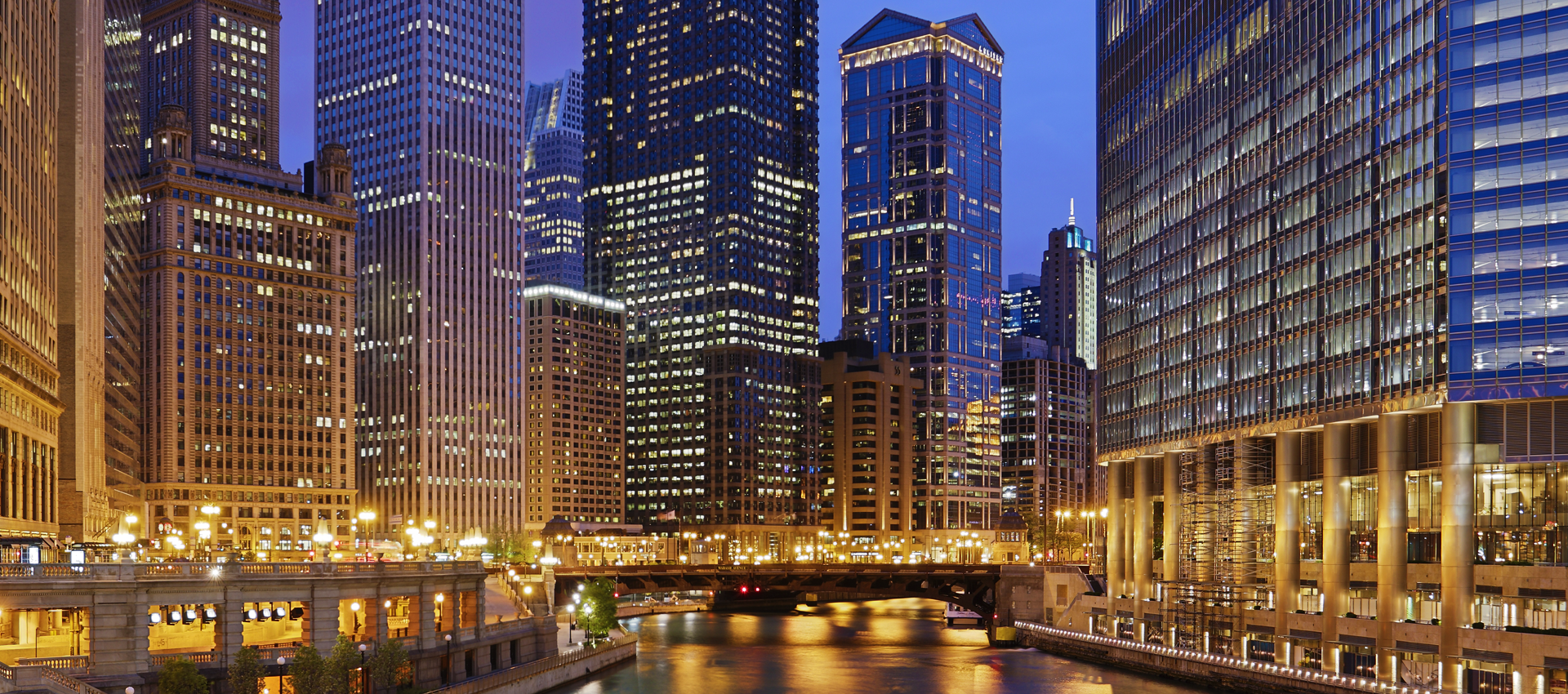Facelift in Chicago, IL

Over the years, the effects of gravity, exposure to the sun and the stresses of daily life take a toll on our face. In fact, the face is one of the first areas to show signs of aging. This may come in the form of creases below the eyelids, sagging around the mid-face, loose skin underneath the chin or displaced fat or loss of muscle tone that creates jowls.
Facelift, technically known as rhytidectomy, is a procedure that lifts and tightens the skin of your face and neck to help improve these visible signs of aging. During a facelift incisions are made and then excess fat is removed, the underlying muscles are tightened, and the skin is redraped.
Many Chicago-area residents choose to undergo facelift at Northwestern Plastic Surgery thanks to the extensive experience and training of its plastic surgeons.
Facelift at a Glance
- Cost of Facelift: $3,800 to $21,000
- Surgery Length: Approx. 2 to 4 hours
- Length of Hospital Stay: Approx. 24 hours
- Stitches Removed: 5-7 days
- Return to Work: 10-14 days
Facelift Candidates
Ideal facelift candidates should be in good physical and mental health, with specific, realistic goals of surgery. If you’re considering facelift, ask yourself what your desired outcome is. It is reasonable to expect that you will look more youthful after a facelift, but you will not look half your age. Plastic surgery turns back the clock, but does not stop the hands from ticking.
Preparing for Facelift
You will first need to meet with our plastic surgeons to discuss your expectations and desired outcome of facelift surgery. Our surgeons will examine you and ask about your medical history, including any chronic conditions or medications that you take. You will be asked to refrain from smoking and taking certain medications, vitamins or supplements which could impair your surgical recovery. You may also be asked to have some lab testing done prior to your procedure.
The Day of Surgery
Facelift surgery is an outpatient procedure that takes several hours. After you arrive and are taken to the operating room, an anesthesiologist will administer medication to help you sleep comfortably during the procedure. You will not feel anything as our surgeons operate.
To begin surgery, our surgeon makes an incision beginning at the hairline, near the temples, and continuing around the ear to the lower scalp. The surgeon will redistribute fat from the face, jowls and neck, reposition the underlying tissue and lift the deeper layers of the face and neck. The skin will be re-draped, and any excess skin will be removed. If the neck needs further improvement, a second incision may be made underneath the chin. The incisions will then be closed with sutures and the face will be bandaged with surgical dressings.
Recovering from Surgery
In the days following your facelift surgery, it is critical to rest and relax as much as possible. Refrain from any heavy lifting or exercise. Be sure to follow the instructions our surgeons give you regarding medications and caring for your incision area. Our team will want to see you for several follow-up appointments to check your healing progress. If you have any concerns during your recovery, or if you notice something that seems irregular, please don’t hesitate to contact our office.
Potential Facelift Complications
Facelift is not a risky procedure, but any surgery carries a degree of risk. Potential facelift complications include:
- Bleeding
- Infection
- Scarring
- Loss of or change in skin sensation
- Persistent pain

Facelift FAQs
Here you will find answers to many of the questions that are most often asked about facelift. If you have any other questions, we welcome you to contact us for more information.
Can a Facelift be Combined with Other Procedures?
A facelift can be done alone, or in conjunction with other procedures, such as:
- Eyelid surgery (blepharoplasty) to tighten and lift the eyelids and smooth puffy under-eye bags;
- Brow lift surgery or forehead lift surgery to elevate the brows to a more youthful position;
- Facial implants to add contour and definition to areas where fat has been displaced, or for loss of volume in areas such as the cheeks.
Are There Non-Surgical Alternatives to Facelift?
Some candidates considering facelift choose to postpone surgery and elect for treatment with injectables such as Botox or dermal fillers to ward off the effects of aging. If this sounds like a suitable option, inquire about the possibilities with our surgical team.
How Long Will the Results of Facelift Last?
Your facelift results will be long-lasting, but they will not stop the aging process. Each patient’s experience is different, but on average the results of a facelift last 7-12 years. Some patients age more rapidly, for one reason or another, and desire a second operation sooner. Others never require facelift surgery again. Older patients sometimes benefit from a secondary “mini-lift” or tuck within a year of surgery due to some early relaxation, especially if they are having the procedure for the first time and have marked laxity.
How Many Stitches Does a Facelift Require?
The number and type of sutures used to close the incisions vary, depending on the surgeon’s judgment. Stitches secure the layers of tissue and close the incisions; metal clips or staples may be used on the scalp. Stitches and staples are removed 8-14 days after surgery.
Is it Standard Procedure to Use Drains for a Facelift?
Following surgery, a small, thin tube may be temporarily placed under the skin (behind your ear) to drain any blood that might collect there. The drainage tube(s) will be removed 1-2 days after surgery.
How Long Do You Usually Wear the Head Bandages for a Facelift?
Following surgery your entire head will be bandaged. The bandage may feel tight at first because it is meant to apply an even pressure to your face, neck and head to minimize bruising and swelling. If it is uncomfortably tight, remove it, and notify your physician. The bandages are usually removed 1 day after surgery. Upon leaving the hospital, a headscarf is an effective disguise. You may shower and shampoo after the dressings are removed.
Will I Have Scars?
All surgical incisions cause scarring, which is actually nature’s way of healing. Scars are hidden in the hairline and behind the ears, except for a small area in front of the ears. Once healed, the hairline scars will fade and become barely visible within 6-8 weeks. While scars are permanent, they are rarely noticeable, nor do they cause complications.
Will I Be Swollen or Bruised?
Swelling and bruising of the skin are expected, especially during the first 2 weeks after surgery. Your swelling will increase for the first 48 hours; it will then gradually subside. You may notice an increase in swelling in the morning — this will also slowly subside as the day progresses. It is important with this surgery to remember that before you see the improvement it is intended to provide, you will experience a period of unattractive bruising and swelling.
Will I Feel “Tight”?
Virtually all patients report some tightness and numbness of the face and neck. The tightness generally resolves within 2 months. Some numbness persists for several months with gradual resolution. The feeling of tightness is usually due to swelling. As this recedes, the skin loosens and then stabilizes. This is normal and should not cause alarm.
What Type of Anesthesia Is Used During the Operation?
Two types of anesthesia are available: local with sedation and general anesthesia. The type is usually chosen when we “reserve” your surgical date and is mutually decided on by you and your surgeon. Local anesthesia with sedation is chosen by most of our patients. This involves numbing the area to be treated, and is accompanied by supplementary medications given at the discretion of the surgeon and depending on how you feel. You will be able to hear and respond to questions and instructions; afterward, however, you will recall little or none of the surgical experience. You can be confident that you will be calm and comfortable during your procedure.
Schedule a Facelift Consultation
To learn more about facelift surgery, please contact the team at Northwestern Plastic Surgery to schedule a personal consultation. Call us today or send us an email.




